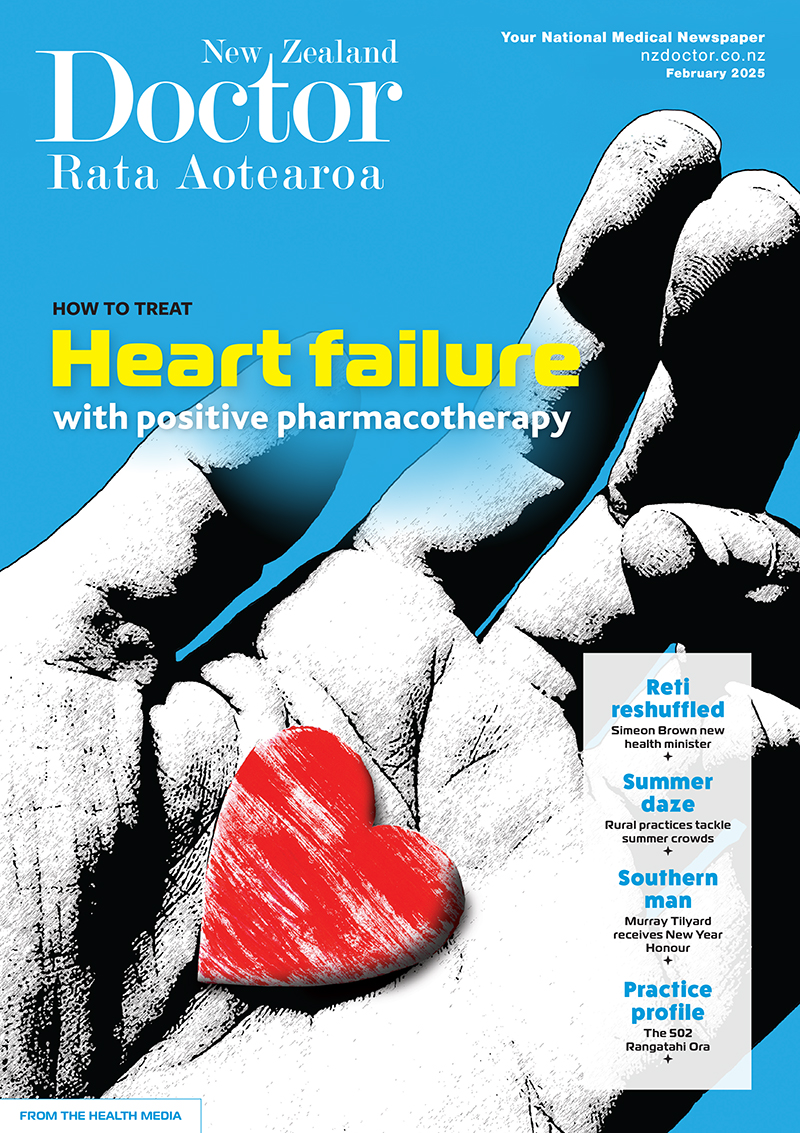Pharmacist prescribers Linda Bryant and Leanne Te Karu discuss positive polypharmacy for heart failure. Current evidence shows the intensive implementation of four medications offers the greatest benefit to most patients with heart failure, with significant reductions in cardiovascular mortality, heart failure hospitalisations and all-cause mortality
University of Otago research fellow awarded $800,000 funding grant to reduce tuberculosis health inequalities and forge STEM study pathways for Māori and Pasifika
University of Otago research fellow awarded $800,000 funding grant to reduce tuberculosis health inequalities and forge STEM study pathways for Māori and Pasifika

On Thursday 11 November, University of Otago researcher and former international student, Dr Htin Lin Aung, has been awarded one of eleven prestigious Rutherford Discovery Fellowships from the Royal Society Te Apārangi.
Dr Aung will receive $800,000 over five years to continue his ground-breaking research on mate kohi (tuberculosis), the second leading infectious killer after COVID-19. Tuberculosis (TB) kills 5000 people every day and disproportionally affects socio-economically disadvantaged communities.
Dr Aung moved to New Zealand in 2001 as an international student at the University of Otago, where he identified his passion for science. His research was originally driven by the dramatic number of TB cases in his home country of Myanmar.
Now after 20 years in Aotearoa, Dr Aung is focussing his efforts locally by incorporating a “community and patient centred” approach to his research, with aims to address the health inequalities facing Māori and Pasifika communities.
“Māori and Pasifika are disproportionately affected by TB, with six and 16-times higher rates of TB respectively, compared to Pakeha,” says Dr Aung. “Inequities in TB carry health implications not only for an individual, but for whānau and the wider community.”
Of particular concern are the two strains of TB-causing bacteria that are endemic to Māori and Pasifika. These strains contribute to the adverse health burdens in these communities as they are highly transmissible.
In his Rutherford Discovery Fellowship, Dr Aung will take a multidisciplinary approach by integrating his work with key community stakeholders, along with expertise in molecular biology, epidemiology, and social science.
“While our work in the laboratory will continue to improve bacterial genome sequencing and our ability to diagnose and prevent TB – ultimately, if you can’t understand what the community needs, you are not serving the community” says Dr Aung.
Dr Aung’s passion is to empower the next generation of students, including Māori and Pasifika to study STEM subjects – a goal he says was inspired by the empowerment he received upon arriving in New Zealand as an international student.
“I came to New Zealand 20 years ago to study and from the moment I arrived, the support I received was incredible. Now I am in a position to give the same level of empowerment back to the communities that I engage with – starting with addressing the underrepresentation of Māori and Pasifika in science.”
The fellowship will involve Māori and Pasifika researchers and postgraduate students, which Dr Aung says is an essential pathway to further diversify the health research workforce in Aotearoa.
“He Tangata, the Māori Whakataukī, has shaped my research – the people, the people, the people”, says Dr Aung. “We need to create an education environment that results in more Māori and Pasifika rockstars in the science sector, who understand mātauranga Māori and can pass on the science knowledge in line with tikanga Māori to their whānau and hapori whānui (wider community).”
Dr Aung has mentored nine students including six Māori and Pasifika students over the last two years.
Māori student Callum August first met Dr Aung at a hui in 2019. August was inspired by Dr Aung’s multidisciplinary research approach and direct relations with Māori. On November 12, August was awarded a Māori Health PhD Scholarship from the New Zealand Health Research Council to the value of $131,850 towards his study: Combatting Mate Kohi (Tuberculosis) on the home front.
“I read about Dr Aung’s journey from Myanmar to New Zealand and how his education experience at the University of Otago translated to his determined focus to give back to Māori and Pasifika communities. This stood out to me at the time and since then, Dr Aung has been an instrumental mentor. I have him to thank for empowering me to pursue PhD level study that will enrich both my academic and local communities.”
University of Otago Deputy Vice-Chancellor, Research and Enterprise, Professor Richard Blaikie, says the fellowship will accelerate research of Dr Aung – one of Otago’s best and brightest emerging leaders.
“Dr Aung has followed a remarkable journey here in Dunedin – starting as an international student and progressing right through to research fellow. We are fortunate to have researchers of this calibre committed to helping to improve health outcomes for vulnerable New Zealanders,” says Blaikie.



